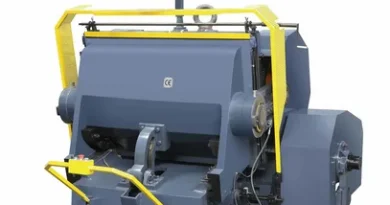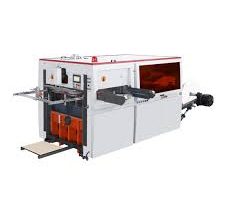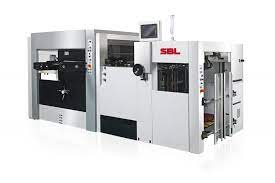Die-Cutting Machinery: Elevating Precision and Creativity in Modern Manufacturing
In the highly competitive manufacturing sector, the need for precision and versatility in production processes is paramount. Die-cutting machinery offers an essential solution, enabling manufacturers to produce intricate designs with high precision across a variety of materials. This article explores the transformative impact of die-cutting machinery on industries ranging from packaging to consumer goods, highlighting its role in enhancing product quality, operational efficiency, and innovation.
Benefits of Die-Cutting Machinery
- High Precision and Consistency: Die-cutting machines utilize sharp steel dies or advanced laser technology to cut materials with exact precision. This capability ensures that every cut is consistent, which is crucial for maintaining quality standards in mass production.
- Enhanced Productivity: By automating the cutting process, die-cutting machinery significantly speeds up production. It allows for rapid processing of large batches, reducing lead times and increasing throughput, which is vital for meeting tight market deadlines and high demand.
- Versatility Across Materials: Modern die-cutting machines are designed to handle a variety of materials, including paper, plastic, metal, and textiles. This versatility makes them indispensable tools in industries requiring multi-material applications, such as electronics, automotive, and textiles.
- Customization and Innovation: The ability to produce complex shapes and designs easily makes die-cutting machinery a key player in product development and customization. Manufacturers can quickly prototype new products and tailor designs to specific customer requirements, fostering innovation and creativity.
Industries That Benefit from Die-Cutting Machinery
- Packaging Industry: For businesses in the packaging sector, die-cutting machinery is crucial for creating custom packaging solutions that are both functional and aesthetically pleasing. This technology allows for the production of uniquely shaped boxes, inserts, and displays that enhance brand identity and consumer engagement.
- Consumer Electronics: In the electronics market, where components must be precisely sized and shaped to fit into compact spaces, die-cutting machinery ensures the accuracy and reliability of each part, from insulating layers to conductive films.
- Fashion and Textiles: Die-cutting machines are used to cut intricate patterns and designs in fabrics and leathers, enabling designers to produce detailed and creative fashion items quickly and efficiently.
Making the Investment
When considering the integration of die-cutting machinery into production lines, businesses should evaluate:
- Specific Needs and Scalability: Assess the specific cutting needs of your products and whether the machinery can scale to meet future production expansions or changes in material types.
- Cost Efficiency: Calculate the potential return on investment, considering factors such as increased production speed, reduced waste, and the ability to bring more processes in-house.
- Technical Support and Training: Choose a supplier that offers comprehensive technical support and training to ensure that your team can maximize the use of the machinery and maintain it properly.
Conclusion
Die-cutting machinery is a technological asset that brings precision, efficiency, and innovation to modern manufacturing. By enabling precise cuts, rapid production, and the flexibility to handle various materials, this machinery not only enhances the quality and diversity of products but also provides manufacturers with a competitive edge in fast-paced markets. Investing in advanced die-cutting technology is a strategic move that promises significant returns through enhanced productivity and product innovation.



